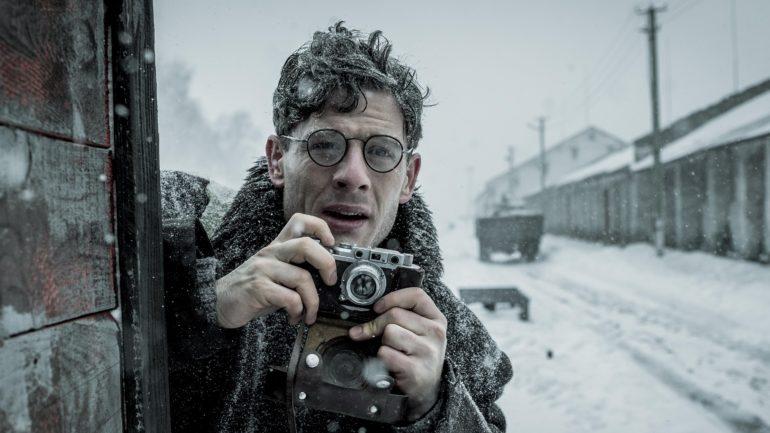Polish Film Biz Revs Up International Co-Productions in Film and TV
By Carole Horst
LOS ANGELES (Variety.com) – Polish movie output is increasingly robust these days, and international co-productions are standard operating procedure with ambitious features and series shooting year-round.
That may not have translated into many high-profile projects at the Berlinale, but Agnieszka Holland’s Stalin-era “Mr. Jones,” which is a buzz title in competition, has maintained the country’s gung-ho rep. Holland also has a series about Napoleon being pitched at Berlin’s Co-Pro Series.
Among the Polish films screening in Berlin’s market is Jacek Borcuch’s Italy-based drama “Dolce Fine Giornata,” which had its world premiere in January in Sundance’s World Cinema Dramatic Competition.
Meanwhile, the success of Pawel Pawlikowski’s mainly Polish-backed “Cold War,” nominated in three Oscar categories — foreign-language film, cinematography and director — has put the country’s filmmaking talent in sharp relief.
“Polish cinema is without doubt on the rise,” says Magda Zimecka, managing director of Orka, a production and post shingle whose main focus is “to do more co-productions and hopefully, with the new tax incentives law, provide more services for international productions.”
The company, which worked on “Mr. Jones,” has previously teamed with the film’s producers, Klaudia Smieja and Stanislaw Dziedzic, on the former’s “Pity” by Babis Makridis, and Emir Baigazin’s “The River,” which had a Venice berth. “Pity” played at Sundance.
As Poland’s new 30% production rebate makes the country more competitive, Zimecka says it is clear that business is about to get brisker. “The number of the co-productions is continuously growing and this is the trend for the whole of Europe,” she says. “With the new cash rebate we hope to attract American studios.”
One trend that may fit into this structure is a host of historical dramas now in the works. The Polish Film Institute offers a dedicated incentive for this genre of up to 6 million Polish zlotys ($1.6 million) per pic, says Izabela Kiszka-Hoflik, a former PFI executive and now of IKH Pictures Promotion.
The PFI’s support for period pics has already started to bear fruit. Poland’s Minister of Culture, Piotr Glinski, recently reported that almost 40 of these films are in production. The next to be released is Wladysław Pasikowski’s “Kurier,” about Polish World War II resistance fighter Jan Nowak-Jezioranski. Another of these historical epics, Dariusz Gajewski’s World War I drama “Legions,” is set to premiere in the fall.
A new wave of Polish children’s films is also picking up pace, supported by a dedicated program at the Polish Film Institute. “The number is still not really significant, two to three titles per year, but for years no kids’ content was being produced,” says Kiszka-Hoflik. Brisk foreign sales had spurred sequels to be planned on some films, such as Marta Karwowska’s “Tarapaty” (Double Trouble).
“It’s immensely important for the education of our kids, the future audience of Polish films,” says Kiszka-Hoflik. “They need to see content in the Polish language, set in the reality they know.”
Polish documentaries are also making a splash, with bold films such as Raul de la Fuente and Damian Nenow’s “Another Day of Life,” about Polish war correspondent Ryszard Kapuscinski, earning international festival kudos and a win for best European Animated Feature Film at the European Film Awards.
Anna Zamecka’s “Communion,” co-financed by the PFI, was among 15 full-length documentary films to be short-listed for this year’s Oscars. The film, which follows teenager Ola as she helps her energetic autistic brother, Nikodem, prepare for his first Holy Communion, had already won the documentary prize at the European Film Awards.
One Polish doc likely to grab attention abroad in the future is Lukasz Czajka’s “Of Animals and Men.” This focuses on the story of Jan Zabinski, the director of the Warsaw zoo during World War II. His heroic efforts saved more than 300 people, mainly Jews, from the Nazis. The story inspired the non-fiction book “The Zookeeper’s Wife” by Diane Ackerman and the 2017 film of the same name with Jessica Chastain.

